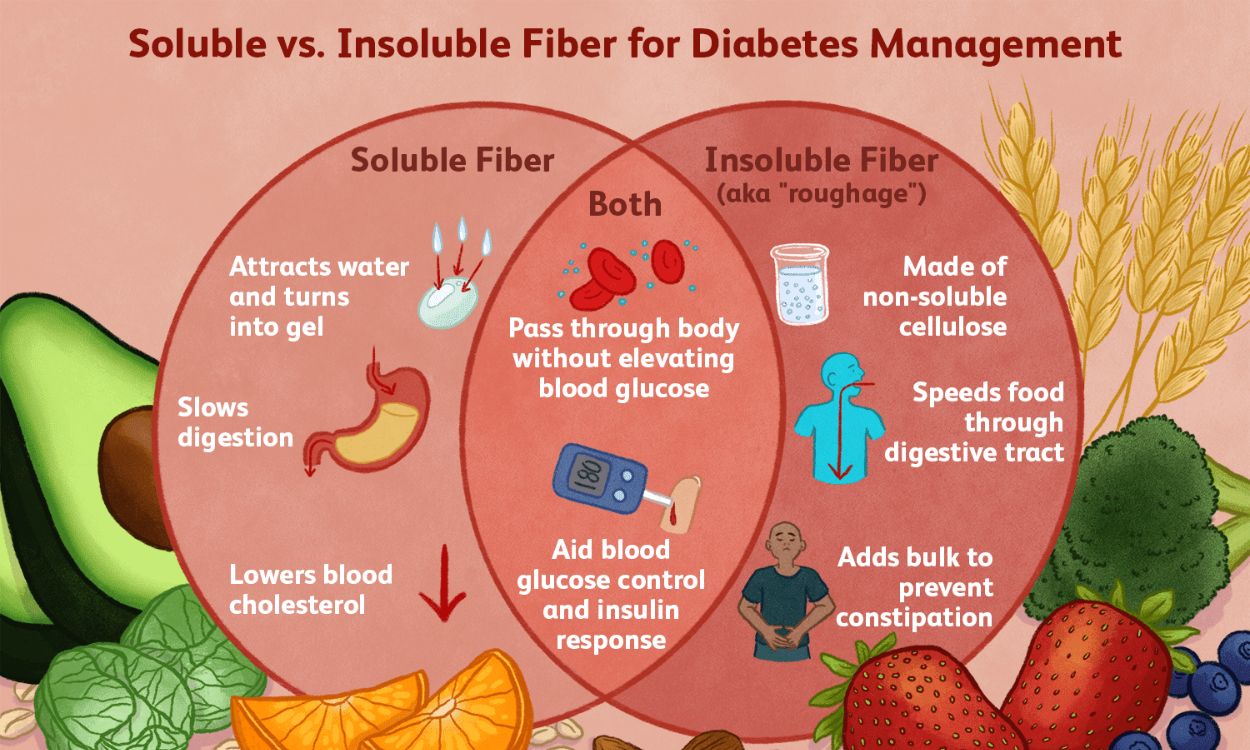Soluble vs Insoluble Fiber: What’s the Difference and Why Does it Matter?
Fiber is an essential nutrient that plays a crucial role in maintaining good health. It is a type of carbohydrate that cannot be digested by the body, but it helps to regulate digestion and keep the digestive system healthy. There are two types of fiber: soluble and insoluble. In this article, we will explore the differences between these two types of fiber and why they are important for your health.
Soluble Fiber
Soluble fiber dissolves in water and forms a gel-like substance in the digestive tract. This type of fiber is found in foods such as oats, barley, beans, peas, lentils, fruits, and vegetables. Soluble fiber helps to lower cholesterol levels, regulate blood sugar levels, and promote a feeling of fullness, which can help with weight management.
One of the main benefits of soluble fiber is its ability to lower cholesterol levels. When soluble fiber is consumed, it binds to cholesterol in the digestive tract and prevents it from being absorbed into the bloodstream. This can help to lower LDL (bad) cholesterol levels and reduce the risk of heart disease.
Soluble fiber also helps to regulate blood sugar levels by slowing down the absorption of glucose into the bloodstream. This can be especially beneficial for people with diabetes, as it can help to prevent spikes in blood sugar levels.
Insoluble Fiber
Insoluble fiber does not dissolve in water and passes through the digestive system largely intact. This type of fiber is found in foods such as whole grains, nuts, seeds, and the skins of fruits and vegetables. Insoluble fiber helps to promote regular bowel movements and prevent constipation.
One of the main benefits of insoluble fiber is its ability to promote regular bowel movements. Insoluble fiber adds bulk to the stool, which helps to move it through the digestive tract more quickly. This can help to prevent constipation and other digestive problems.
Insoluble fiber also helps to promote a healthy gut microbiome by providing food for the beneficial bacteria in the digestive tract. This can help to improve overall digestive health and reduce the risk of certain diseases.
Why Does it Matter?
Both soluble and insoluble fiber are important for maintaining good health. A diet that is high in fiber can help to reduce the risk of heart disease, stroke, diabetes, and certain types of cancer. It can also help to promote a healthy weight and improve digestive health.
The recommended daily intake of fiber for adults in India is 25-30 grams per day. However, most people do not consume enough fiber in their diet. To increase your fiber intake, try to include a variety of fruits, vegetables, whole grains, nuts, and seeds in your diet.
Fitpaa can help you achieve your health and fitness goals by providing personalized nutrition and exercise plans based on your metabolism and health goals. Our expert team of nutritionists, fitness coaches, and doctors can help you to optimize your fiber intake and improve your overall health. Download the Fitpaa app today and start your journey towards a healthier, happier you!











